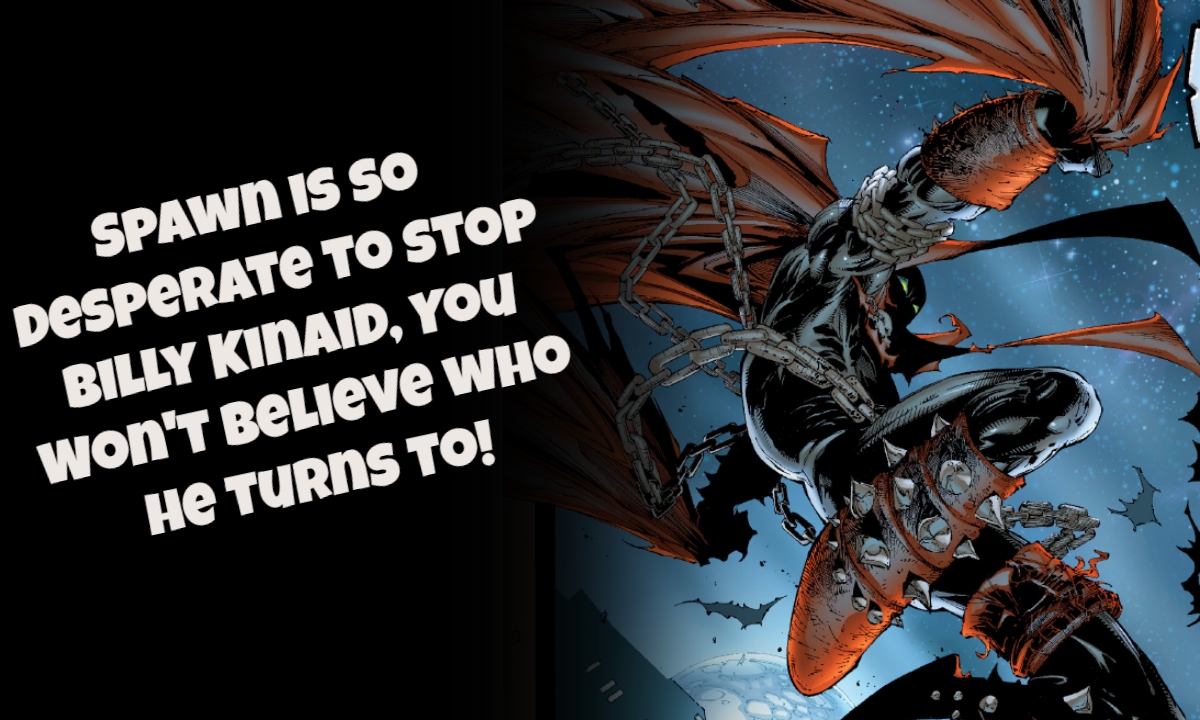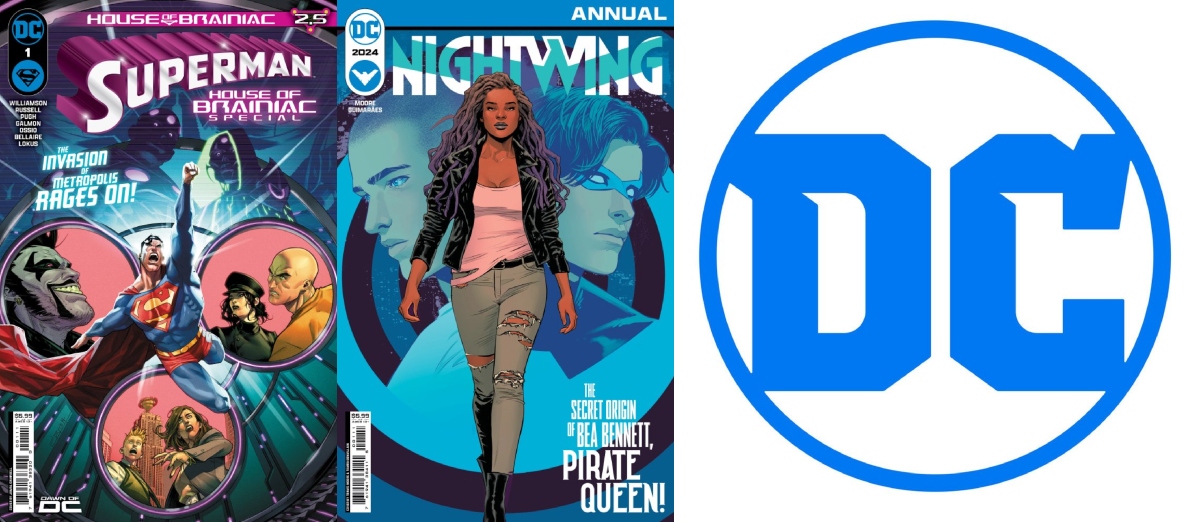I think Hollywood should be working to swap races on multiple big-screen characters, specifically comic book characters; a topic I feel I need to discuss following the rumors that Warner Bros. may be eyeing Black Panther and Creed’s Michael B. Jordan as the new Man of Steel. This turned out not to be the case, with Henry Cavill apparently staying in the role, but it opens the door to a fantastic discussion.
Yes, that is an impossible argument, but I have thought it out, with the help of LRM writers that both agree and disagree with me, so please give it a full read before commenting below. I’ve explored both arguments and will include the opposing one wherever possible. I don’t expect you to agree with me, but I would hope you don’t just read the title and then skip my arguments and thought process.
There are many arguments I have heard about why changing the race of a character is inappropriate.
“The character was originally created as white.”
“Casting a black actor would lead to an ‘affirmative action’ performance, not one by the best qualified actor.”
“Why don’t we make Black Panther white, then, is that okay?”
“Isn’t giving black actors White roles demeaning? Why not cast them as strong black characters?”
“The comics need to make the change first by introducing more ethnically diverse characters.”
Let’s explore these one-by-one.
“The character was originally created as white.”
Was he? Or she? Screenplays, as with comic scripts, rarely introduce a character as “Clark Kent, 20s, White.” It is the combination of the casting director and marketing department that decide on white, bankable actors, when it comes to Hollywood. I’m sure comics were even simpler back in the day, unless your writer/creator named a character “Black Panther,” you drew your new character as white. Because, if you were a Marvel or DC artist in 1960, you were white. And the comic industry at large thought their readers were white. But we don’t live in 1960, we live in 2018.
What is essential to Superman or Spider-Man – as another example – that makes them White? Is theirs a story of what it is like to be a white American, or the “White struggle,” or it is a generic origin that could apply to nearly any race?
Who says some residents, if not all, of Krypton are black (it’s like when Donald Glover as Lando in a SNL skit jokes, “I thought there’d be a black planet somewhere in the galaxy.”). Why couldn’t Superman be picked up by poor black farmers in Kansas? It’s not the 1940s, a Superman the age of Michael B. Jordan would have been born in the late ‘80s, so how are there not black farmers in Kansas? I’ve been there many times, it’s not that white.
Even more-so with Spider-Man. I was on Team Donald Glover when it came time to cast our second Spider-Man in The Amazing Spider-Man, before Miles Morales existed. Now, today many would say Miles Morales meets our quota for a minority Spider-Man, but we all know in our hearts that is a consolation prize. Miles will always be “that other Spider-Man,” until the Marvel Cinematic Universe puts a focus on him. But why couldn’t Donald Glover play Peter Parker in The Amazing Spider-Man? Peter Parker is a poor kid from Queens. How is that an exclusively white experience?
Now, a racial swap doesn’t work with every comic book character. Let’s look at Batman and Captain America. A rich black person watches over Gotham? Completely plausible. A black man’s family has a history of old money that ties back to the creation of Gotham? That’s more of a stretch, if you are to take a look at both real American history and the history of Gotham.
Captain America can be black today, just as Sam Wilson was Cap before Secret Empire in the comics, but Steve Rogers cannot be black, if you keep his origin. Would the military experiment on a black soldier with a dangerous serum in the 1940s? Absolutely. Would they make him the symbol of the country during WWII? Absolutely not.
With the lack of minority characters available in the comics (there are exceptions, but there are also Sam Wilson and Rhodey, effectively sidekicks to white heroes), we should be opening up the casting calls to a wider range of actors, even those that don’t fit a preconceived notion of what a character can look like. Using the correct character, like a modern day Superman, as a springboard for a black actor maybe just what the doctor ordered, especially since I have yet to hear an actor recommendation that would do better.
“Casting a Black actor would lead to an ‘affirmative action’ performance, not one by the best-qualified actor.”
Limiting Superman to white actors is actually decreasing the size of the pool of talented actors you can draw from. Casting a black, Hispanic, or Asian actor in the role can be the complete opposite of “affirmative action,” not making truly talented actors like Michael B. Jordan off limits.
Now, should we be casting minorities just to cast them? I say yes because there are enough talented minority actors to fill any role. But if, for some unbelievable reason, there are not, then focus just on white actors. But, if you reached that conclusion, you may just be a casting director from the 1960s.
Hollywood is too focused on who is bankable, which has been proven again and again no longer matters. We do not live in an era of movie stars, we live in a world full of franchises, with the best paid and most famous actors simply making smart franchise selections.
That’s one of the reasons DC has failed where Marvel has succeeded (which is a whole different discussion). Marvel knew it just needed a few accurate actors, not movie stars, to portray their Phase 1 heroes at least, as long as they could build the Avengers brand into a powerhouse. DC, with a few exceptions, has had the opposite approach, throwing expensive Ben Affleck in a role that sells itself.
The point is, we don’t need a white movie star to carry a franchise, or even a black superstar like Will Smith; any actor of any fame or race could take on these characters. Find the right man, no matter the race, because the fact that “casting a white star sells tickets” seems to be just as antiquated as the need to keep a character’s race the same as the comic.
Remember, these films are “adaptations” of the comics. If comic fans got as angry over Marvel changing “Infinity Gems” to “Infinity Stones” as fellow internet geeks get about making a white character black, this would not be a tolerable world to live in at all.
“Why don’t we make Black Panther white then, is that okay?”
This one is very tricky.
First, there are certain characters that cannot be white, just as those who cannot be black like Captain America and Batman. Black Panther is the head of an ancient tribe, so he can’t be a white South-African. Luke Cage is the hero of Harlem because he is black. Otherwise, it doesn’t fit. Being black is a part of these characters’ experiences, and what defines many of the decisions they make.
Still, let’s look at Blade, a character I never thought was defined by his race. Could he be white? Absolutely. But why would you rob the black community of a character when most characters are already white males?
It’s less a factual issue and more a moral quandary with a character like Blade. Should white men, who are still firmly in charge of Hollywood and comics, steal a character like Blade for the white race? This is really hard to get across, but that’s why I believe it is racist to make a black character white, and not vice versa.
If not racist, then incredibly misguided.
For some of this, we need to look at the larger history and social issues of the United States, where most these characters, including Blade, Superman, and Spider-Man, are based. Look, people of all races have it hard, depending on your social class, location, employment, religion, etc, but white people like myself cannot even pretend to understand a minority’s perspective on life. Or a woman’s. Or someone from the LGBT community (we will surely get to these issues on future installments of Breaking Geek). We want to understand someone else’s plight, their struggles, but you can’t actually walk in someone else’s shoes. We are limited by our own experiences growing up, in public, watching white heroes dominate the screen in any genre.
We can never understand what it is like to be a minority in the United States, or abroad, unless you are one. And that’s the first thing I think we need to accept as white men.
So, taking characters from black actors is morally wrong, but swapping white roles to other races is perfectly fine, in my book, because they can’t really “steal” our characters when we have thousands.
“Isn’t giving black actors White roles demeaning? Why not cast them as strong black characters.”
An honest question. Is it demeaning to minorities to give them roles written for white men, instead of strong characters written just for them?
By casting Michael B. Jordan as Superman, are we saying that there isn’t a strong black character he could play?
No, partially because there are so few leading black and minority characters in comics that are even as big as Ant-Man, Doctor Strange, and Guardians of the Galaxy, perhaps Marvel Studios’ riskiest properties… at the time.
There need to be more strong minority characters coming from comics, but it has been a slow and tedious process. Which brings me to…
“The comics need to make the change first by introducing more ethnically diverse characters.”
Yes, they do.
But, these films we are watching, a best, are ten years behind the comics. Most of the characters we see on the big screen were popular in their current state were created before I was born, including Black Panther.
So, these changes in the comics, making Sam Wilson Captain America, having a Black teenage girl temporarily take over for Iron Man and continuing into her own book, Iron Heart, and introducing Ms. Marvel as Middle-Eastern, will eventually make it to the big screen, but until then, we shouldn’t be afraid to bring more diversity into the casting, even if it means seeing versions of the characters that don’t look the way we remember them.
Remember, these films are, in the end, adaptations of the comics. An adaptation makes changes to characters, the narrative, etc. Is the Civil War comic anything like Captain America: Civil War? Barely. If we’re adapting other elements to the modern age, by not a Black Superman? Or Venom? Or Joker? Really, most the characters, but not all, should open up casting to any race, giving casing directors more options that end up benefiting us all.
How do you feel about the issue? I’m sure I’m about to be destroyed in the comment section, but it was worth it, dammit! If you have a constructive question, I’d love to do a follow-up to this piece addressing any logical issues you may have.
Don’t forget to share this post on your Facebook wall and with your Twitter followers! Just hit the buttons on the top of this page.

 FOR FANBOYS, BY FANBOYS
Have you checked out LRM Online’s official podcasts and videos on The Genreverse Podcast Network? Available on YouTube and all your favorite podcast apps, This multimedia empire includes The Daily CoG, Breaking Geek Radio: The Podcast, GeekScholars Movie News, Anime-Versal Review Podcast, and our Star Wars dedicated podcast The Cantina. Check it out by listening on all your favorite podcast apps, or watching on YouTube!
Subscribe on: Apple Podcasts | Spotify | SoundCloud | Stitcher | Google Play
FOR FANBOYS, BY FANBOYS
Have you checked out LRM Online’s official podcasts and videos on The Genreverse Podcast Network? Available on YouTube and all your favorite podcast apps, This multimedia empire includes The Daily CoG, Breaking Geek Radio: The Podcast, GeekScholars Movie News, Anime-Versal Review Podcast, and our Star Wars dedicated podcast The Cantina. Check it out by listening on all your favorite podcast apps, or watching on YouTube!
Subscribe on: Apple Podcasts | Spotify | SoundCloud | Stitcher | Google Play




